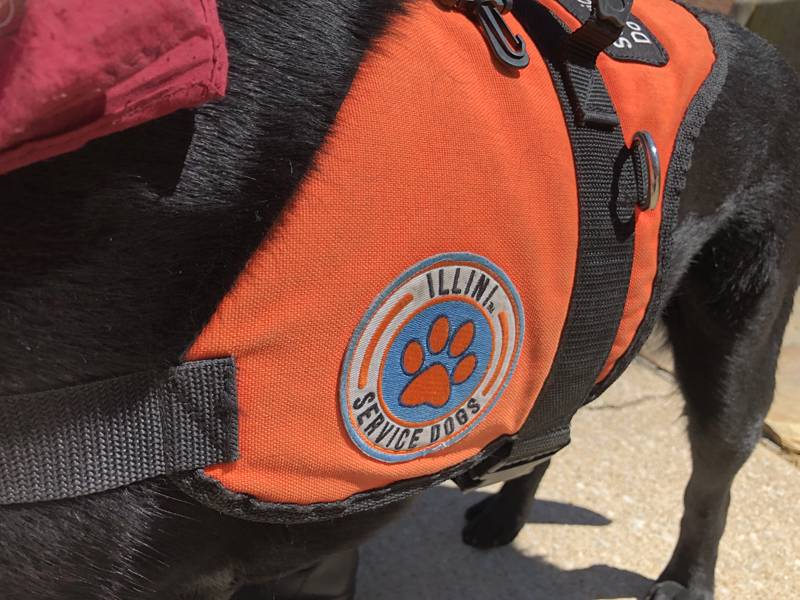It’s kind of a great thing to have the opportunity to talk to people in this community who are making difference in their sphere of influence, however big or small that sphere might be. This latest interview checked a lot of “all the feels” boxes for me. Dogs? Check. Helping to improve the lives of others? Check. A unique little pocket of goodness in our community? Check.
I met Illini Service Dogs trainer Megan Sebahar, a junior in community health at the University of Illinois, and her “trainee” Poppy, a one year old black lab, at the Illini Union on a warm and windy afternoon, on a day when the Quad was packed with students, the Union was bustling, and the chimes at Altgeld were a somewhat constant drone in the background. A distracting environment to say the least, but Poppy was unfazed. As we sat down to chat, she settled herself on the sunlit patio and took a little snooze while Sebahar shared about the work of Illini Service Dogs.
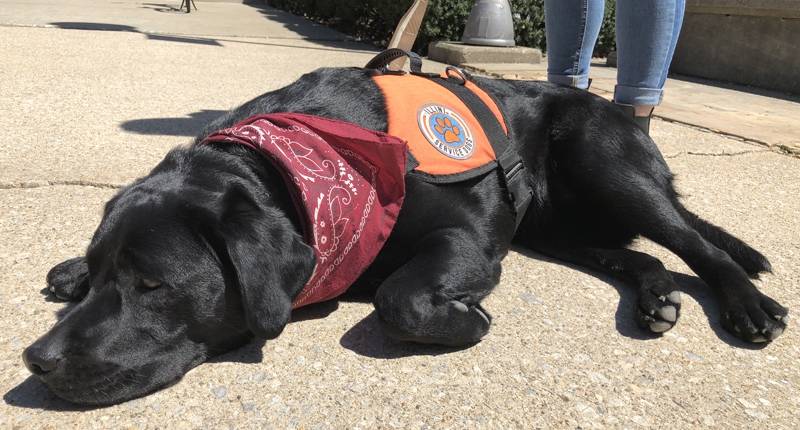
Sebahar didn’t have any experience with training service dogs when she arrived on campus as a freshman (experience isn’t a requirement for club membership), “I trained my own dog, but that was it.” But she knew she wanted to get involved with some sort of group on campus, so she did a keyword search on the Registered Student Organization page — for Animals, Dogs — and Illini Service Dogs appeared as an option. She sought out their table on Quad Day, filled out the application and was thrilled to be asked to come in for an interview. You see, one doesn’t just sign up for this particular RSO as you might for others. It’s a bit of a competitive process, mostly because of the sheer number of students that express interest each year. Sebahar explains “at the beginning of every school year we have an interview and application process…I think the year I applied there were about 300 interviews and over 1000 applications, which is awesome, but every year we accept about 30. Our club right now is about 70 people.”
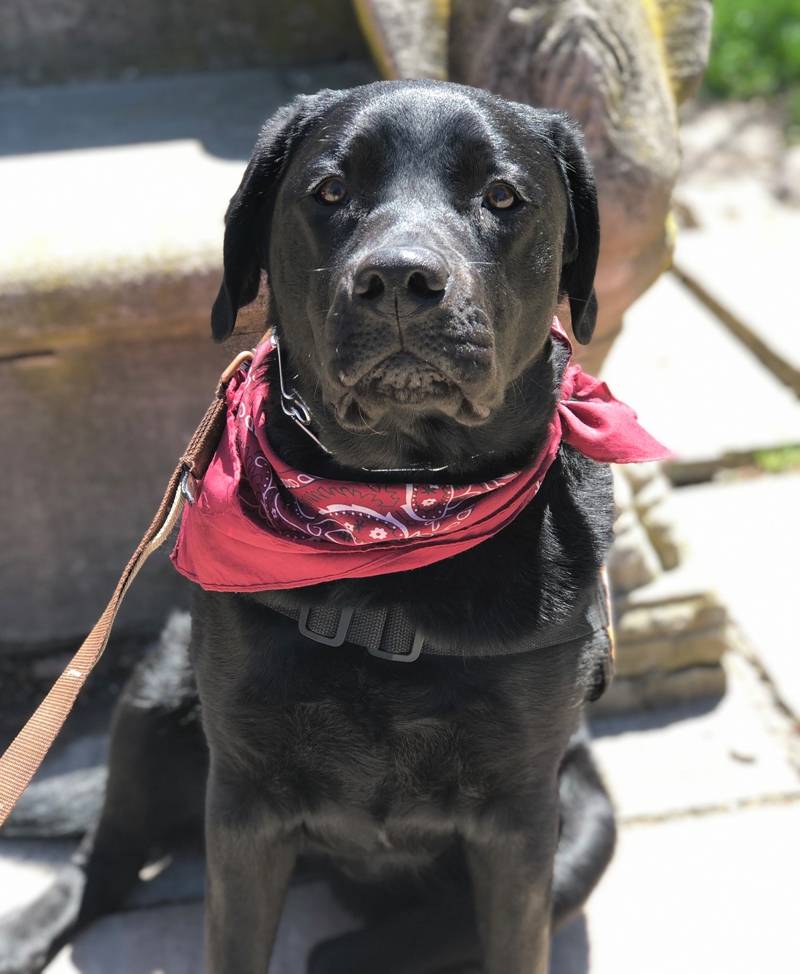
Sebahar worked her way up through the organization, gaining experience working with dogs and also serving on the executive board, and eventually expressed interest in housing a dog. She was paired up with Poppy, who now lives in her apartment and is with Sebahar most of the time, though there’s a team of eight handlers that share training and care of Poppy.
Illini Service Dogs was founded by Bridget Evans in 2010. As a student at the University of Illinois, and also as a person with a physical disability who trained her own service dog, she saw how college students might be perfect for developing such a program. Says Sebahar, “College students really want to get involved, we really like helping out, we have spare time.” Evans developed the training program and techniques — these dogs are specifically trained to help with those with physical disabilities — that now get passed down as new students become involved.
“One of the biggest things that we do is teaching each other how to be better…how to better handle situations. We have meetings every week, and a good portion of that is us teaching other. It’s a really collaborative group.”
Dogs come to the club when they are about two to three months old. Here’s Poppy when she first started her training.
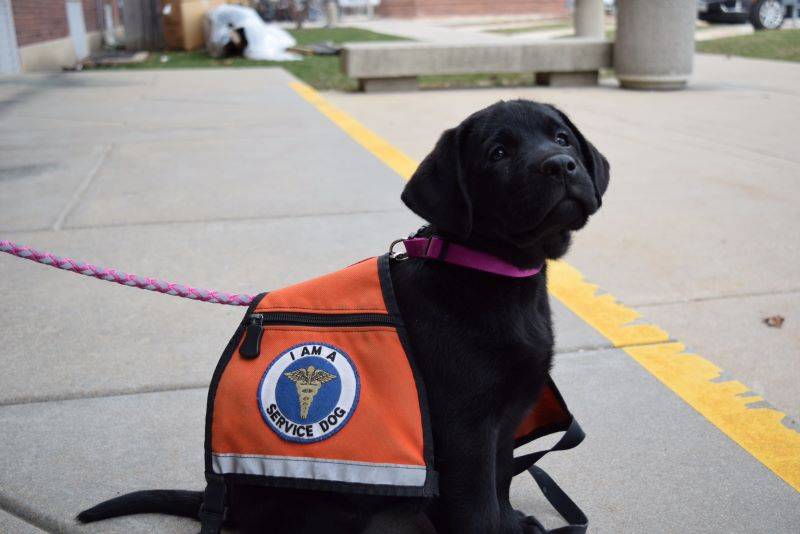 Photo provided by Illini Service Dogs
Photo provided by Illini Service Dogs
I know, I can barely handle it.
At this stage, trainers are working on the basics, much like you would if you were training your own puppy. Sebahar says it’s mostly play at this point, but they are learning some practical skills like walking on a leash. Socialization is a big part of this stage too. It’s the only time when a trainer will welcome and even encourage you to interact with their dog-in-training.
As a one year old, Poppy is about halfway through her training. According to Sebahar, “She is actually pretty advanced for her age, she knows a lot of our more advanced commands or is learning them.” Trainers typically work with a dog for three hour sessions, but only about 30 minutes of that is focused skill work. Poppy showed off a couple of her skills:
Practicing with “push plates” at automatic door
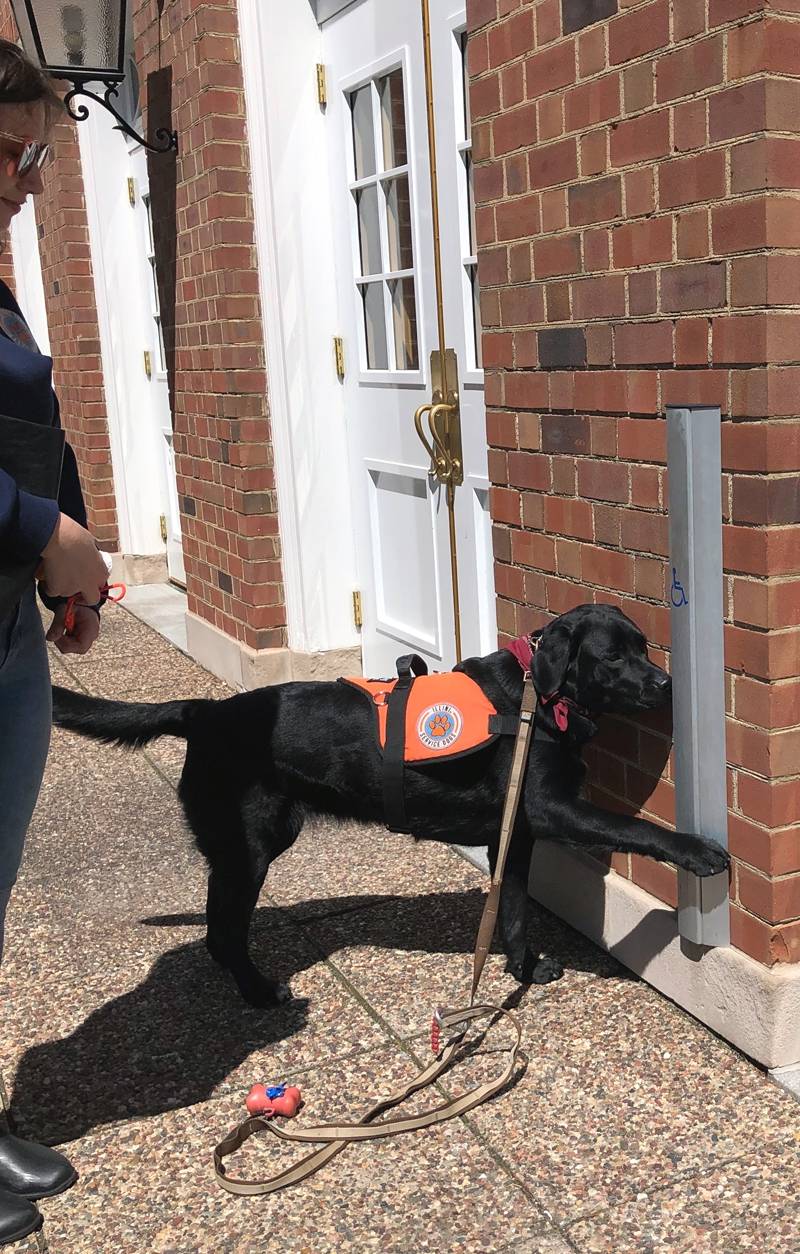
Retrieving a pill bottle
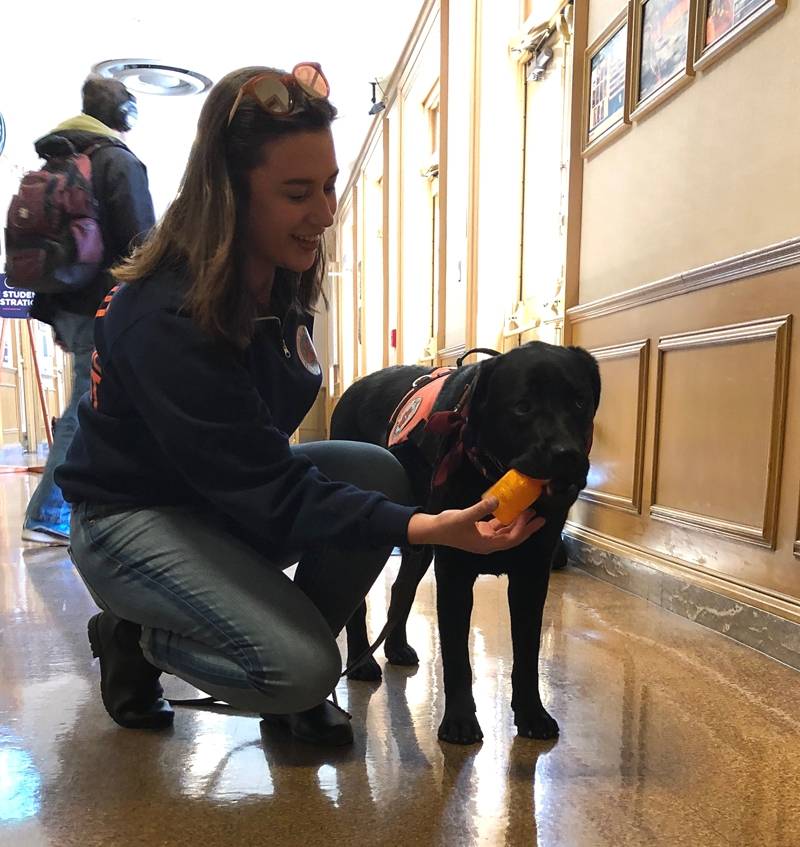
Tugging on a zipper
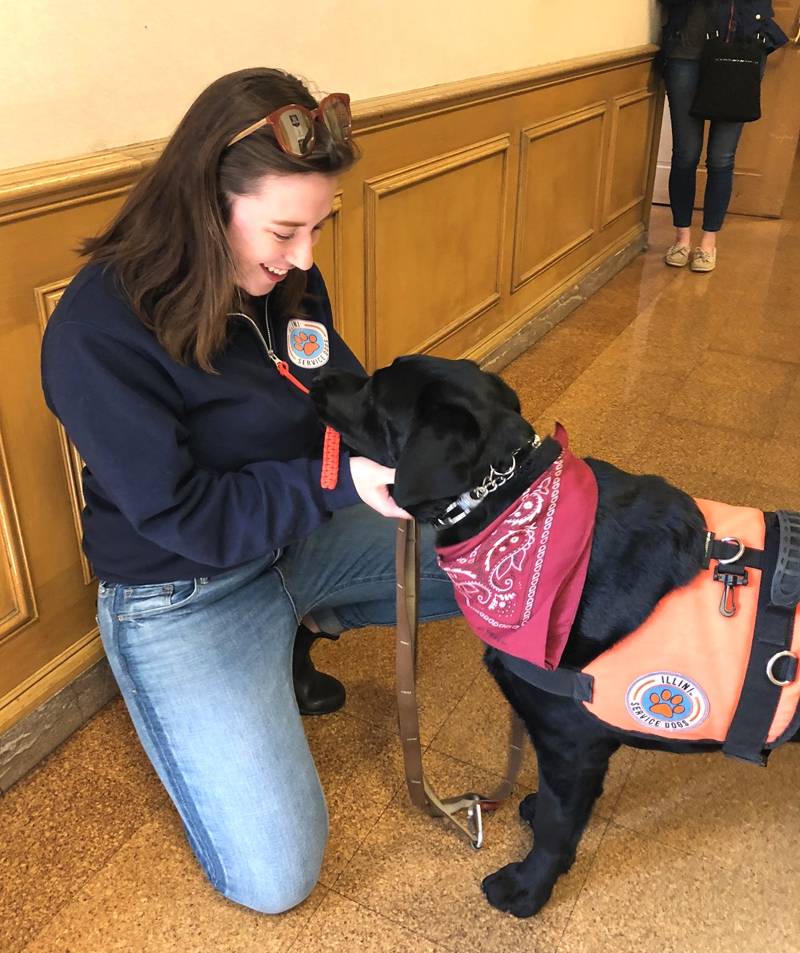
The rest of the session is play, and as Sebahar says “getting them tired.” Which for Poppy, can take a really long time.
There are seven dogs in the program, many of them donated from breeders, though this past weekend four of them “graduated” from their training. And yes, they had a ceremony for them and everything. What comes next for the graduates? It’s time to find just the right placement. Those in need of a service dog can apply through the website, and as the last semester of a dog’s training comes around, the exec board will start looking for the right match. It’s not a first come first serve placement process. “People who have disabilities are really diverse, so not everyone has the same needs, and not all of our dogs have the same skills.” The process starts with inviting some prospective owners to come meet with the dogs, to see how well they get along. If a good relationship is developing, then the Illini Service Dog team brings the dog to the applicant, or has the applicant comes here for a more extended time period, so they can begin to get more acclimated with each other. Even when it comes time for the dog to be transferred to the new owner, the board remains in touch to make sure everything is going smoothly. As Sebahar says, they want to “fine tune the dog’s training to the person.” All of the dogs are given to their owners free of charge.
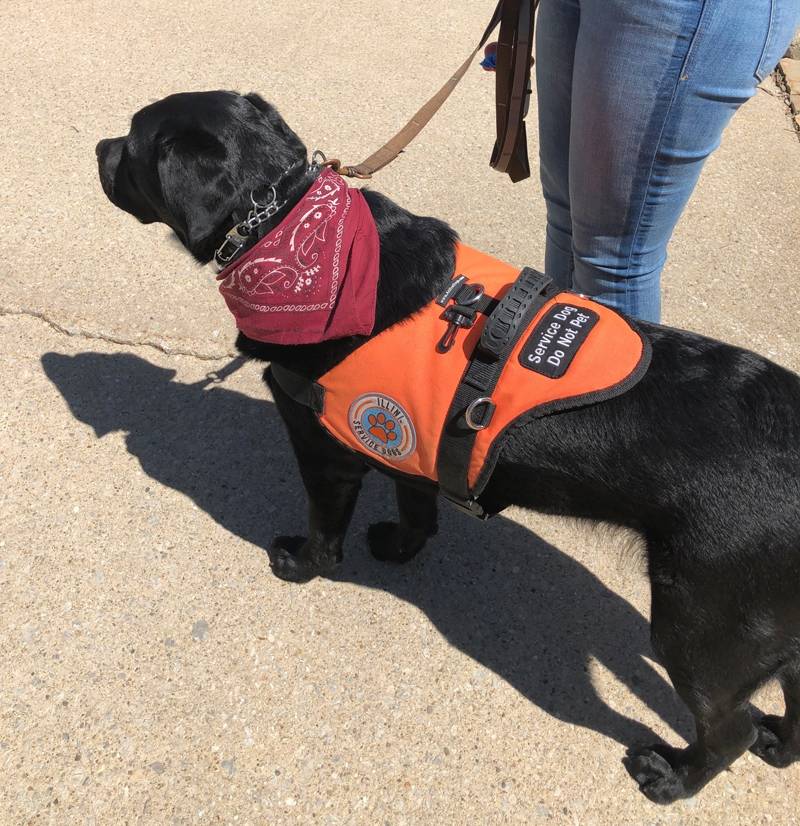
Sometimes it’s hard to know how to react to a service dog when you encounter one. It’s instinctive for us to want to pet or at the very least talk to dogs we meet, or at least for me it is. But Sebahar emphasizes the importance of not being a distraction for the dog. Of course there’s no petting, but engaging in any way can be a problem. “Staring them down, making kissing noises, waving…some people recognize our dogs too, which is great, but they will call out their names which is not great…You have no idea what the dog is trained to do, so that dog could be waiting to hear a command from their owner at any second to perform something. If that dog misses the command, it could potentially hazardous for the owner.”
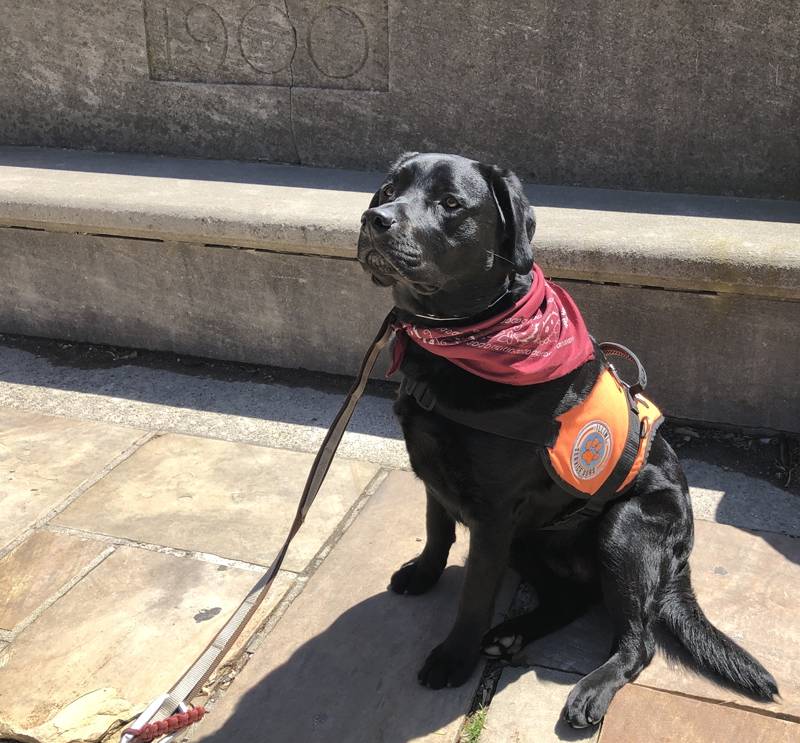
Sebahar hopes to go into occupational therapy, and would love to continue working with a service dog organization. Poppy has another year or so to complete her training, then will have her own graduation, and will be ready to serve an owner who needs her.
To learn more about Illini Service dogs, visit their website and be sure to follow them on Facebook, Instagram, and/or Twitter (trust me, it will be a marvelous addition to your feeds).
Photos by Jessica Hammie








